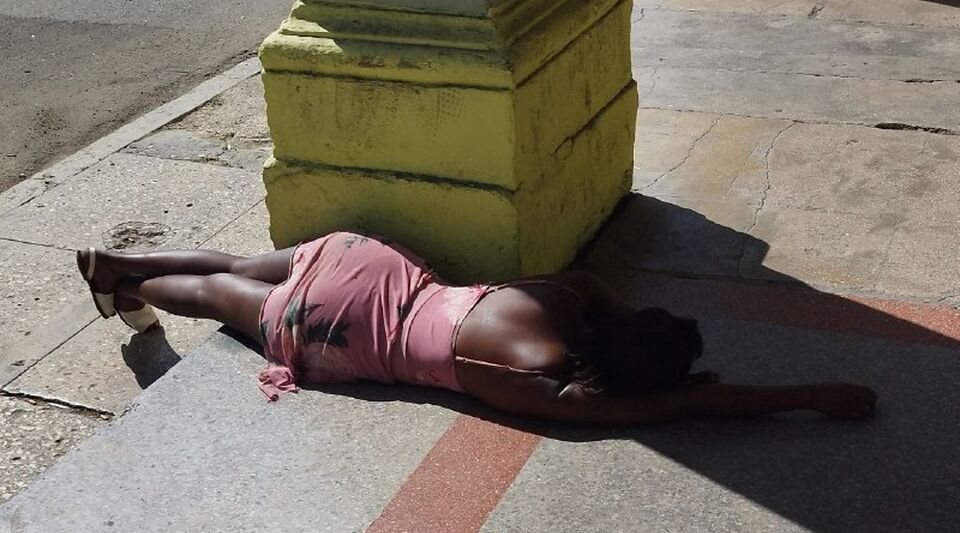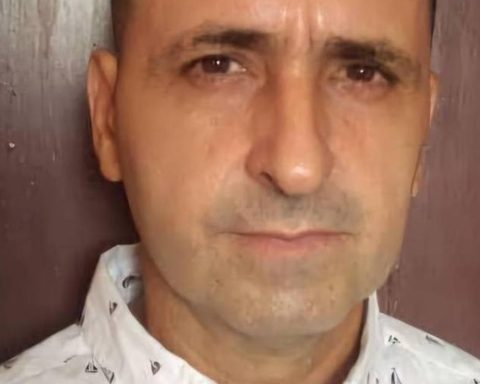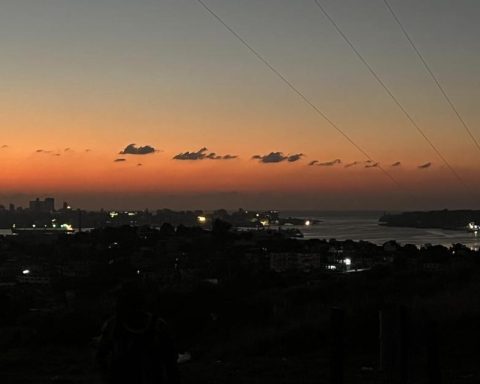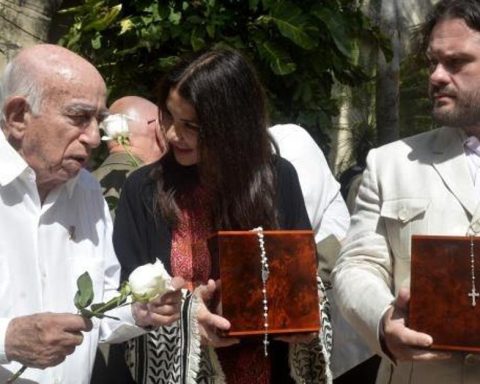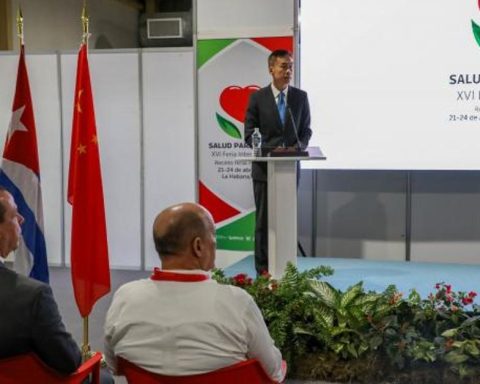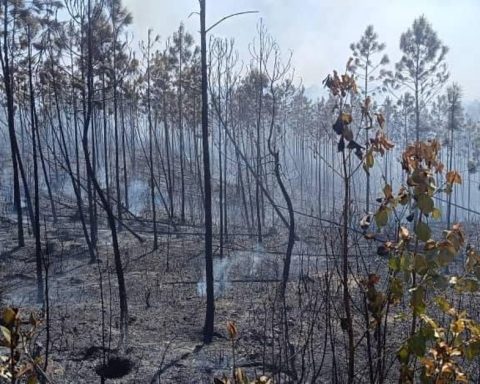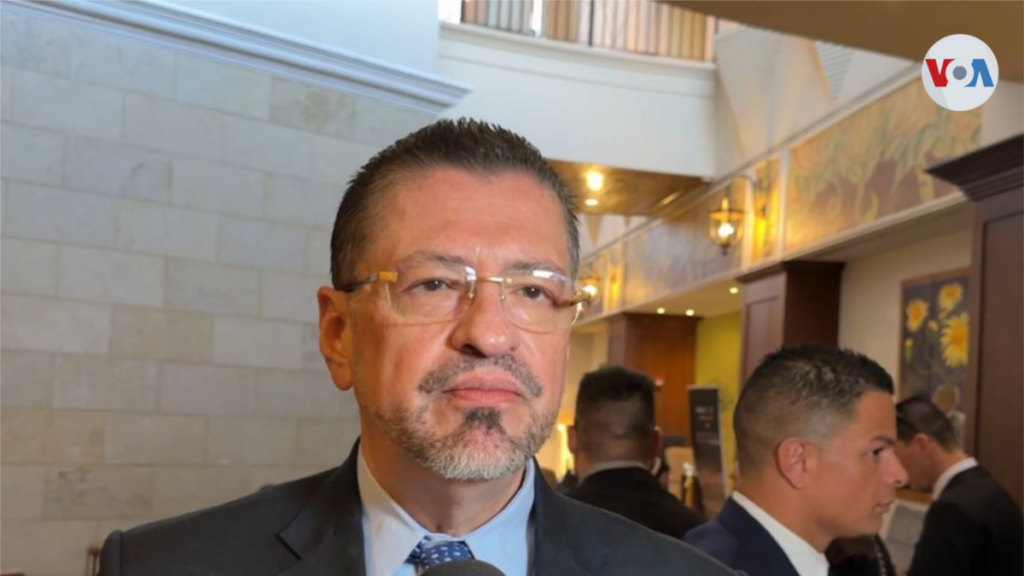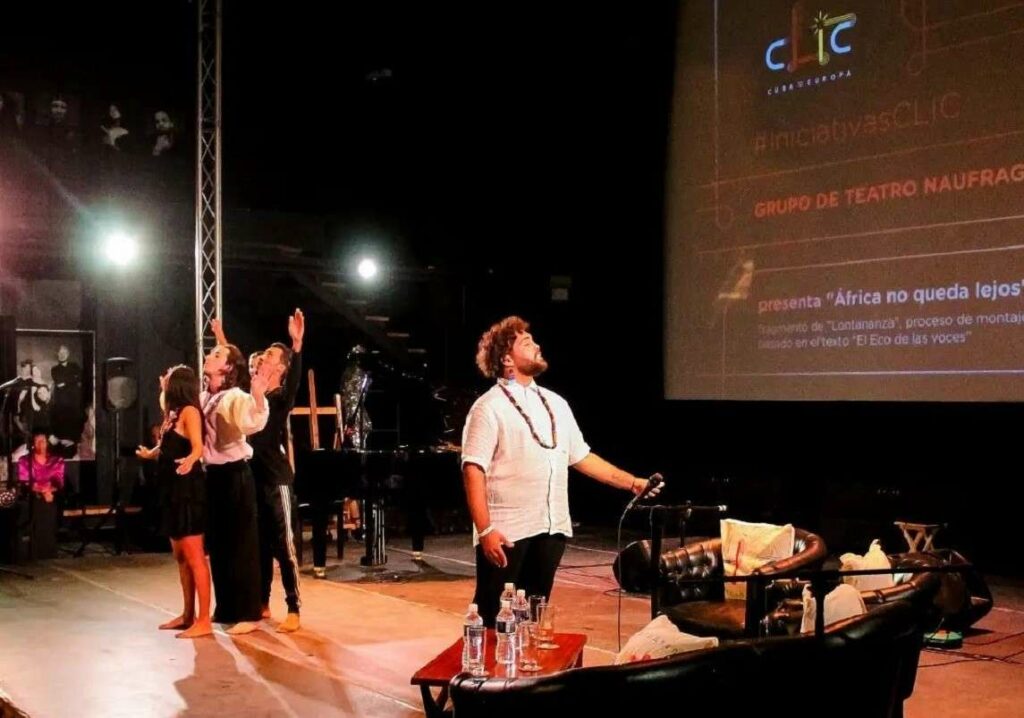The crisis that Cuba is experiencing is not only reflected in the official datathe independent reports or the exodus that does not stop. In the streets, at every step, misery is evident. Ana María, a middle-aged neighbor from Centro Habana, mentions an example: “A few days ago, on Infanta street, a man around 50 years old was going to pick up some croquettes from the floor, and when he saw that I saw him, embarrassed. The truth is that it gave me more embarrassment than him.”
The scenes are comparable to the previous great crisis, which at least was baptized with one of the greatest euphemisms given by Castroism: “special period in times of peace.” It was common then, in the 1990s, to see his marks on the bodies of Cubans, extremely thin and wrinkled. Thousands of them came to suffer conditions as serious as that blinding neuropathybehind which were malnutrition and the abuse of homemade alcohol.
Today’s crisis has no name, but the same face. The one of the increasingly empty cities, especially of young people. The one with the people who fall to the floor unconscious by poisoning of spark e’ train. The one of the elderly (and not so old) who rummage through the containers or beg for alms.
“Today I was having a pizza and a soft drink in a private place and a 70-year-old man with crutches came begging, who couldn’t even walk, and I bought him the same thing I was eating”
And it does not only happen in Havana. Jorge, from Holguín, says that he encounters the same type of situations every day. “The number of people on the street who are checking the garbage and asking for money has increased a lot, but a lot. Just today I was having a pizza and a soft drink in a private place and a 70-year-old man with crutches came begging, I couldn’t even walk, and I bought him the same thing I was eating. Yesterday a woman who saw me counting some money in the street approached me and said: ‘oh, give me something for the peas.’ A woman asked me if I could buy her a cassava fry. I wanted to give her 100 pesos but she asked me to buy it for her: ‘they cheat me,’ she told me crying. And what breaks my heart the most, the children who beg : ‘Could you give me five pesos?'”.
Jorge attributes the shortage mainly to inflation, which does not subside: “A pound of pork is 400 pesos, and you buy four pounds and there are two of meat and two of bone and fat, which do not work. A carton of eggs Here it costs 1,500 pesos, a liter of oil 1,300. People make ends meet with almost no oil, no rice.”
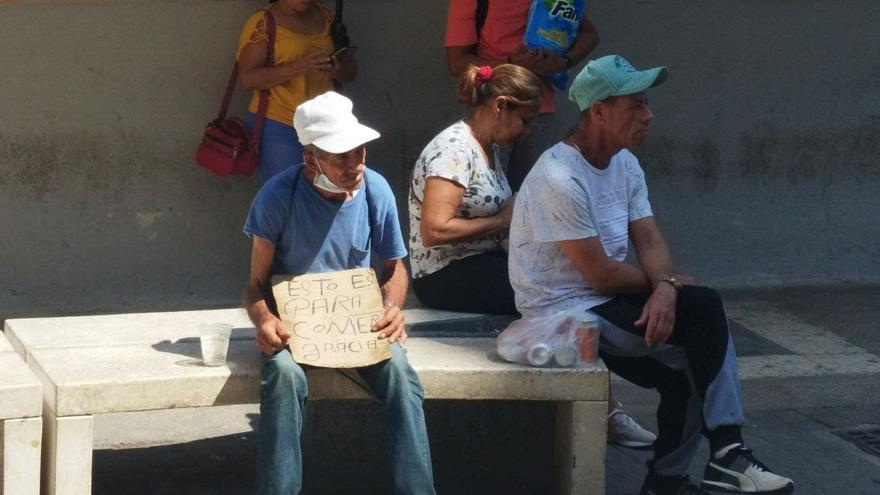
Thus, the families are reducing the quantities, they eat rice with a little vegetable, they eat only a peeled banana for lunch, they get used to not having a piece of animal protein. “I have a neighbor who stops having lunch to give it to her son, who is in high school. Many times I see that they eat rice congrí with two tomato wheels because they don’t have a main dish,” Jorge details.
Something similar recounts Lisandra, from Sancti Spíritus. “Recently I took a friend a mincemeat that I cook, it was past lunch time, and I realized that the child had been given rice with beans and she hadn’t eaten anything.”
Because they have something to put in their mouths, people eat even the impossible. “My mom threw away a horrible hash that she had boiled in hot water because someone told her it was like ham and she wanted to give it to the neighbor’s dogs, who stopped her dead because she wanted it for herself.”
Sometimes, as happened to Ana María with the man who collected croquettes in Centro Habana, shame settles between both parties.
Sometimes, as happened to Ana María with the man who collected croquettes in Centro Habana, shame settles between both parties. “Another time I went to say hello to a friend from the university, at lunchtime, the children interrupted her all the time while we were talking: ‘Mom, I’m hungry.’ And I realized that she didn’t want me to see what that they were going to eat”, continues Lisandra, who asserts: “People don’t say it, but they are starving”.
From San Antonio de los Baños, Artemisa, the epicenter of the mass protests on July 11, 2021, Caridad is emphatic: “Famine is widespread. Soon we will not exist, because they are going to starve us and we are not going to to have a doctor to assist us”.
The woman, in her thirties and with a young daughter, lashes out at the government: “I don’t know how there is that clinging if they can’t solve a problem, and they want us to continue electing people we don’t even know who they are. Last week I didn’t know The light went out because there were elections, and now that there are no elections? Let’s eat all the blackouts that they let us take away.”
Caridad’s account is long, and goes through electricity (“you cannot live without light”), water (“they haven’t put it here in five days yet”), food (“milk is a prohibited product” , “why are we going to talk about beans at 200 pesos”) or the increasingly precarious health services (“there is no medical assistance because doctors have nothing to cure and they are not magicians”). “I can’t really explain how we are surviving,” she concludes.
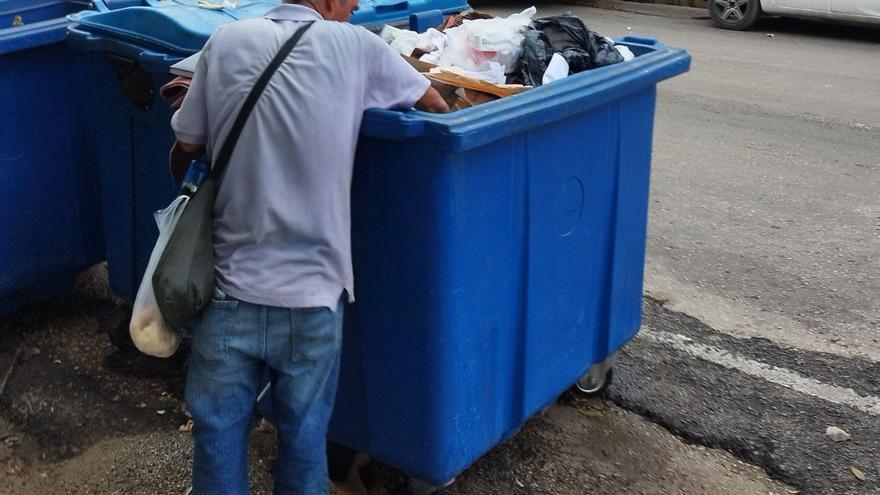
“Between my sister and I, we bought a yogurt that costs us more than 250 pesos each cucumber. [litro y medio] and you have to pay for it in the informal market. When a state truck comes, there is killed, and that for taking a yogurt at a price that is not far from 100 pesos (70, 80, 90 pesos a bag). You don’t have a meal, a chicken thigh, a piece of pork. There is no one to pay for the onion “, she shells, and continues with her rosary of sorrows.
Rice, he says, is a “hot topic”: “Here in this town they are selling a pecked rice, I don’t know where they are getting it from and it has pieces of stones inside, like transparent. That cries before the eyes of God. Not only do you have to spend two hours choosing it to remove a number of black seeds, but on top of that, that type of particle can break a tooth, and which dentist do you go to? Everything is combined, now the domino is closed.”
For Caridad, the moment Cuba is experiencing would call it “zero minute” because “we have no options for anything.”
There is another general comment: what worries the most are the children. “I suffer bitterly because I have a girl under the age of seven and I worry about day to day. The schools can’t even function anymore, the teachers don’t want to work because they are also hungry,” says Caridad.
“I suffer bitterly because I have a girl under the age of seven and I worry about the day to day. The schools can’t even function anymore, the teachers don’t want to work because they are also hungry”
For Ana María, the situation with the children is “the debacle”, and she recounts the torment of her grandchildren, who not only have to put up with tasteless rice and peas every day, but also all kinds of propaganda content. “The girl has to present tomorrow, after a week sick with asthma, one paper was about the tax system, nothing more and nothing less, and another about Fidel’s life as a child and until he was a revolutionary leader,” she says. the woman. “And the boy had to speak about the Zanjón Pact and Martí’s attitude at that time and also about the elections. Tell me something!”
Neither propaganda nor servility nor ordinary work free from suffering. “A relative of mine, a retired military man and a doctor, that is, with an above-average retirement, just celebrated his 80th birthday and his brothers-in-law and nephews put together something to celebrate, because he could hardly buy anything,” says Ana María, along with another sample, his own sister, retired from the state sector, “in the bone and skin having been a beautiful woman.”
Another neighbor of Ana María’s, a health worker, recently went to her house to ask if she had “even chicken skins to eat, because she couldn’t buy anything.”
As if that were not enough, it is not consolation to have money to spend in stores in freely convertible currency (MLC): “Even those who have people abroad can have it in MLC, because the stores are empty. Everything has to be paid to people that they steal it from state places, that they buy it in Havana or I don’t know where and sell it here so that people can live,” protests Caridad, the young woman from San Antonio de los Baños.
With everything, she, like Ana María, Jorge and Lisandra, are part of that 30% of Cuban families that differs from the rest because they receive help from abroad, the most paradoxical inequality created in 64 years of communism. The rest, the majority, have to make do with only what comes through the rationed market, which is not enough to finish the month.
Ana María, who has no way to leave the island, laments: “Going out on the streets already depresses me, the poverty, the churre, the miserable people, the starving animals. I want the aliens to take me, because they make me want to cry”.
________________________
Collaborate with our work:
The team of 14ymedio He is committed to doing serious journalism that reflects the reality of deep Cuba. Thank you for accompanying us on this long road. We invite you to continue supporting us, but this time becoming a member of our newspaper. Together we can continue transforming journalism in Cuba.
